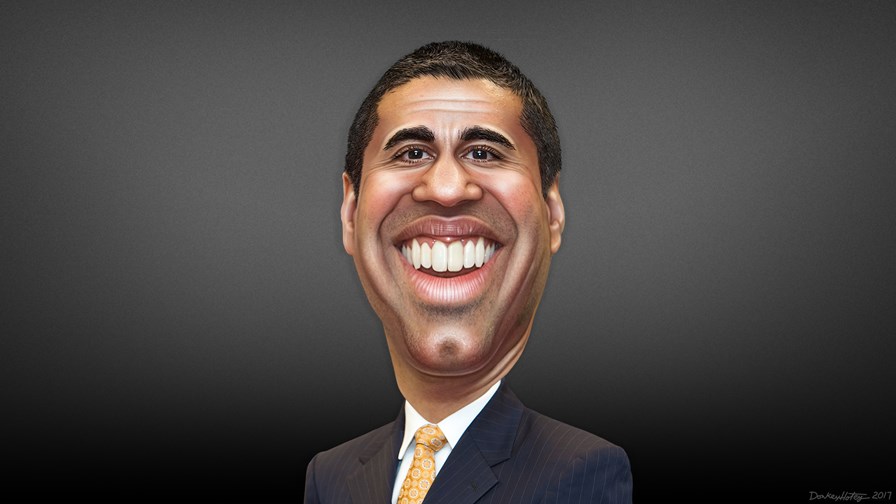Pai wants to bar ‘security threatening’ technology from government subsidised programmes

via Flickr © DonkeyHotey (CC BY 2.0)
- Pai proposes some rulemaking to lock out undesirables
- The universal service fund is currently worth $8.5 billion
- But what impact would an ‘out of bounds’ Huawei and ZTE have on US 5G?
The US Federal Communications Commission (FCC) chairman, Ajit Pai, says he’s proposing new rules to bar the use of government programme funds to purchase equipment or services from companies that pose a security threat to US communications networks. No names were mentioned but it’s widely understood to mean that Huawei and ZTE are in the crosshairs, possibly along with other Chinese, or Chinese-linked companies, given President Trump’s recent move to stop the then Singapore-based Broadcom from buying US radio chip specialist, Qualcomm, on similar-sounding national security grounds.
According to Chairman Pai, speaking on monday, “‘hidden ‘back doors’ to our networks in routers, switches - and virtually any other type of telecommunications equipment - can provide an avenue for hostile governments to inject viruses, launch denial-of-service attacks, steal data, and more.”
How much!?
The fund in question is the $8.5 billion Universal Service Fund (USF) and the commission says it wants feedback on how prohibited USF equipment might be identified. The Department of Defense is already prohibited from using certain telecom equipment from Huawei and ZTE and AT&T recently took notice of government pressure to pull out of a deal to sell the Huawei smartphone, the Mate 10, to customers in the US.
The implications of Pai’s move won’t become clear at least until an initial vote on the proposed rulemaking is held on April 17, but the current Republican majority on the commission makes it more than likely that any new rules will sail through, with the result that carriers will be barred from Chinese purchases on a range of projects, including programmes to help rural and low-income citizens get online access and phone service.
Naturally the Telecommunications Industry Association (TIA) is right behind Pai’s policy, all on the basis of national security worries, of course.
Where will it end?
And you have to wonder about the direction of travel with this. If there is a real concern about equipment back doors and foreign spying, an equipment ban should surely not be limited simply to government-subsidised and military networks - Chinese companies should logically be banned from supplying all networks and equipment purchases in the US, and quite possibly in the fullness of time, they will be.
Which leads us to a quick round of of unintended consequences. The other big technology obsession in the US at the moment involves the necessity to ‘win’ at 5G. If this means anything at all, it must mean building out 5G networks, or at least ‘intermediate’ 4.9G technologies, faster and at less cost than other countries can manage (or actually desire) to do.
Those of us who visited or closely followed Mobile World Congress in Barcelona earlier this month, can be in little doubt that ZTE and Huawei in particular, have taken a firm lead on many of the 5G technology areas. Chopping the Chinese out of the 5G supply chain might help telco technology vendors in, say, Sweden and Finland, but it may not do a world of good for US 5G network builders or users.
Email Newsletters
Sign up to receive TelecomTV's top news and videos, plus exclusive subscriber-only content direct to your inbox.




